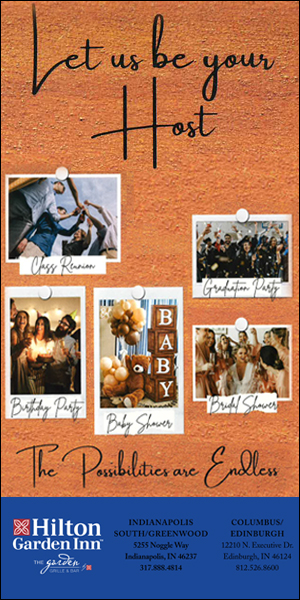
By Greg Seiter
Jenni Berebitsky was close to her naturopathic medical residency when a devastating diagnosis threw a wrench in her life plans.
Married and the mother of a young son, she learned she had amyotrophic lateral sclerosis and told she had an estimated 18 to 24 months left to live. But rather than sink into depression, the Indianapolis resident discovered a newfound appreciation for life.
“The moment I accepted death as a foregone conclusion to life, I was able to glimpse into another dimension,” she says. “My vision was clearer, my hearing was crisp, my senses were honed and I could see the connection between people’s hearts. Although fleeting, there was a moment of peace.”
Now, almost 11 years later, though her body is failing her, Berebitsky is living with perhaps more zest than at any other time in her life. How has she defied the life expectancy odds typically associated with ALS (also known as Lou Gehrig’s disease)? “I have no idea,” she says, while admitting that her son, husband and mother have provided invaluable inspiration. “With the publication of my book and the release of my award-winning short documentary film, I’ve realized the honesty that’s helped me not just survive but thrive has significantly impacted others, too.
This has added a whole new purpose to my life.”
Berebitsky published her memoir, “ALS Saved My Life … Until It Didn’t,” in 2018 and then saw a documentary film about her life — “Grateful: The Jenni Berebitsky Story” — win the Audience Choice Award at last year’s Indy Shorts International Film Festival, presented by Heartland Film Inc.
More recently, Indianapolis Mayor Joe Hogsett and South Bend Mayor Pete Buttigieg recognized her by declaring May 16 as “Jenni Berebitsky Day.” In addition, Heartland Film announced a new cash prize award for its Indy Shorts International Film Festival. The $1,800 Jenni Berebitsky Legacy Award will recognize one film in the Indy Shorts lineup for the best embodiment of Berebitsky’s “spirit and legacy.”
“I am honored and humbled,” she says. “Yes, the recognition feels good, yet I am painfully aware that there are many others whose significant life challenges go unnoticed.” Berebitsky believes her friends and family members also deserve to be recognized for the role they’ve played throughout her battle with ALS. “We have what we call Jenni’s village, and through that, I have friendships that allow me to be myself. I’m not pitied. There is a natural give and take,” she says. “I’ve been able to be a contribution to them in ways that have evolved as my physical abilities have decreased. I feel needed and connected to a community. I am not simply the one taking from others.”


